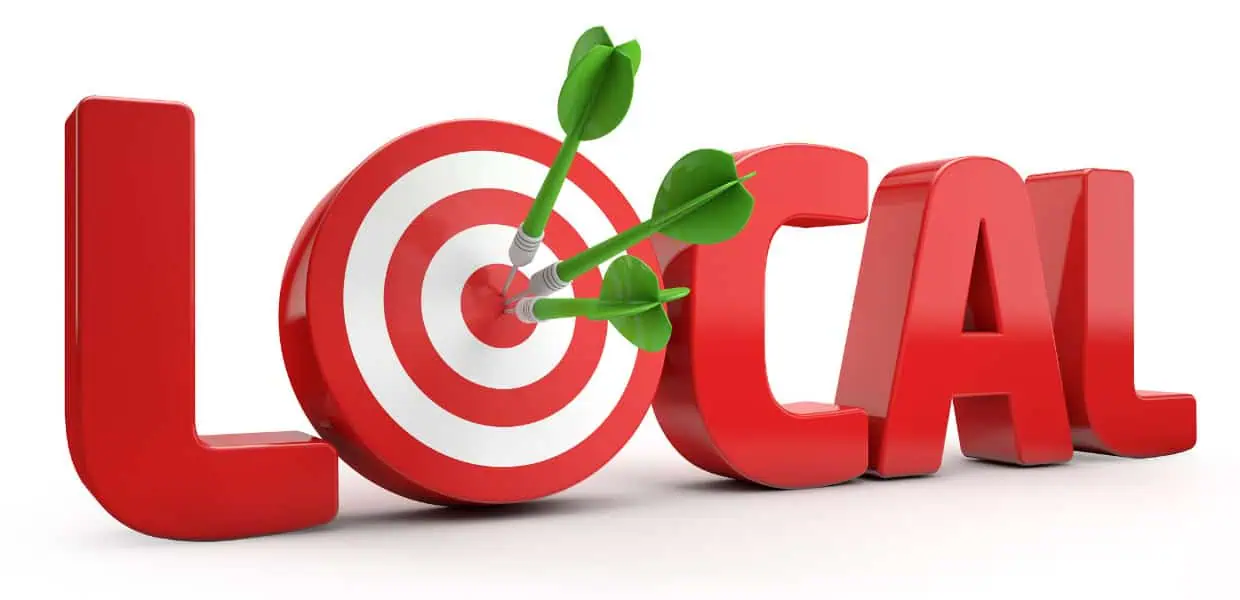Getting found by local customers doesn’t happen by accident. It takes work — and strategy. For many small and mid-sized businesses, being visible in local search results is what keeps the phone ringing and the foot traffic coming through the door. But showing up isn’t just about having the right address or opening hours online. Google looks for signals that say: this business is trusted in its community.
That’s where a local link building service becomes a practical tool. By helping you earn backlinks from community blogs, niche directories, or local press, it sends a clear message to search engines — and your future customers.
Let’s talk about the core mechanics and strategies of how local SEO works.
What is Local SEO

When someone in your city searches for a service you offer, local SEO is what determines whether they find you or your competitor. It’s how businesses show up in Google Maps, “near me” results, and the local pack above the organic listings.
To make that happen, Google needs to understand where your business operates and why it should be trusted in that area. And that’s where link building for small businesses becomes essential. A few relevant backlinks from trusted local sites often carry more weight than dozens from generic directories or blogs.
Challenges for Local Link Building
Local link building sounds simple — reach out to nearby sites, get mentioned, and watch your rankings climb. But in practice, it’s not that easy. Most local businesses don’t have newsworthy announcements or viral content to offer. And many local publishers have limited reach, irregular posting schedules, or simply don’t accept submissions.
Another challenge is relevance. A link from a global tech blog won’t help a neighborhood bakery as much as one from the local food review site. Finding sources that are both trustworthy and location-specific takes time and effort.
Even among marketers, confusion around the different types of link building strategies often leads to generic outreach that misses the local mark entirely. Tactics that work for national campaigns don’t always translate to smaller, regional markets — and trying to force them often leads to low-quality results.
Local Link Building vs Classic Link Building
Getting backlinks is important — but who links to you matters even more. A mention in the local paper can do more for a neighborhood clinic than a backlink from a major tech site. That’s the difference between classic and local link building. One pushes your site up in global rankings. The other helps you get found by people down the street.
| Aspect | Local Link Building | Classic Link Building |
|---|---|---|
| Primary Goal | Improve visibility in specific geographic areas | Improve overall domain authority and global search rankings |
| Link Sources | Local directories, community blogs, regional news sites | High-authority industry blogs, media outlets, large content platforms |
| Content Focus | Location-based topics, community involvement, local events | Broad or niche industry content, evergreen topics, large-scale campaigns |
| Success Signals | Relevance to location, trust from local audiences, map visibility | High domain authority, volume of backlinks, traffic impact |
| Outreach Approach | Personalized, hyper-local, often based on existing relationships | Scaled outreach, cold emails, SEO-driven guest posting strategies |
| Common Mistakes | Using generic tactics that overlook local nuance | Over-prioritizing domain authority over content relevance |
Top Local SEO Link Building Strategies
If you’re searching for practical local link building tips, the rule is simple: focus less on where the link sits in the SEO hierarchy, and more on whether it actually makes sense for your city, your customers, and your niche.
Effective link building for local businesses isn’t about cold-pitching strangers — it’s about building on what you already have and becoming more visible in the local digital space.
Still, many small businesses struggle to execute this consistently. A local SEO link building company can fill the gaps: researching relevant outlets, managing outreach, producing content, and tracking what actually moves the needle — all without pulling you away from day-to-day operations.
Link Swaps with Other Local Sites
Two local businesses agree to link to each other from relevant pages. It only works when the connection is logical — like a yoga studio linking to a massage therapist or a bike shop linking to a repair service.
Why it works
These links are natural and rooted in local context. They also help both sides show up in front of a shared audience and build trust — not just with Google, but with actual customers.
How to implement
- Make a list of local businesses your clients interact with but who aren’t competitors.
- Find a page on each other’s site where a mention feels natural (like “Local Partners” or a blog post).
- Reach out personally and suggest a link swap that benefits both audiences.
Link Insertions on Local Websites

You don’t always need to write something new to get a link. Sometimes it’s easier to find a local article that’s already live and ask if they’d be open to adding a mention of your business. If the content is a good fit, most site owners are open to small, helpful updates.
Why it works
You’re tapping into a page that already has traffic and trust. It’s been around, it ranks, and your link becomes part of something that’s already working — without having to start from scratch.
How to implement
- Look for local blogs or news sites that cover topics your audience cares about.
- Scan older posts and ask: “Would my business or resource actually help readers here?”.
- Reach out with a short message, offer a quick update or tip they can include, and suggest adding a link if it fits.
Local News Websites
Getting mentioned in a local news article — even just a sentence or two — can be a huge win. These aren’t just backlinks. They show people (and search engines) that your business is part of what’s happening in the community.
Why it works
Local news sites have authority by default. Google trusts them, and so do the people reading them. A mention here boosts your credibility and often brings in actual visitors who live nearby and might need what you offer.
How to implement
- Find reporters or editors who write about business, local events, or your industry.
- Pitch them something simple and timely — maybe you’re launching something new, hiring, hosting an event, or partnering with another business.
- Make it easy: give them a quote, a couple of clear details, and let them decide how to use it.
Local PR Articles
Instead of waiting for someone to cover your business, write the piece yourself. Local blogs, business groups, and community sites are often open to well-written guest articles — especially if they’re useful and relevant to the area.
Why it works
You get to tell your story your way — no spin, no guessing. And since you’re the one writing it, you can include a link that fits naturally into the content. It’s a low-pressure way to show up in local search and stay on people’s radar.
How to implement
- Look for local sites that accept contributions — think association blogs, city business pages, or community magazines.
- Pick a topic that connects to where you are: something helpful, insightful, or tied to a local event or trend.
- Work your link into the article where it actually makes sense — as a reference or resource, not a sales pitch.
Viral Local Content
This isn’t about chasing national virality. It’s about making something people in your city actually want to share — a funny post, a useful list, a relatable take on something local. If it hits the right note, it spreads on its own.
Why it works
When people share your content, the links come naturally. Local pages, influencers, even journalists might pick it up — and suddenly your business is part of the local conversation without needing to ask for a backlink.
How to implement
- Pay attention to what people are buzzing about — check local Facebook groups, Reddit threads, or headlines.
- Make something that adds value or humor: a simple map, a ranking, a sharp opinion — whatever fits the moment.
- Share it where locals spend time online, and tag people or groups who might want to spread it.
Local Guest Posting
Sometimes the easiest way to get seen — and linked — is to write something genuinely useful for someone else’s blog. Not a generic SEO post, but a short, practical article that helps their readers and ties into your expertise.
Why it works
You’re not just getting a link — you’re getting in front of someone else’s local audience. If the blog already has trust in the community, your name and business borrow some of that trust.
How to implement
- Find smaller local blogs, niche sites, or even hobbyist pages that your target audience reads.
- Reach out with a real idea — something short, specific, and relevant to their readers.
- Write it without over-promoting yourself, and link back only where it makes sense.
Local Business Directories
Yes, it’s basic. But getting listed in the right local directories still matters. Not for traffic — for trust. These are places Google checks to confirm you are who (and where) you say you are.
Why it works
Consistency across name, address, and website details (NAP) sends a clear signal. And a backlink from a legit directory — not spammy ones — helps you show up in map results and location-based searches.
How to implement
- Search for your business category \+ city \+ “directory” — aim for industry, city, or chamber of commerce sites.
- Double-check that your listing details match exactly across every platform.
- Don’t overdo it — 5 to 10 solid listings are more valuable than 50 junk ones.
Local Sponsorship Pages
When you support something in your community — a school event, youth team, local fundraiser — your name usually ends up on their website. And with it, a clean, natural link.
Why it works
These aren’t SEO tricks. They’re real-world actions that happen to build online authority too. Google sees the connection, and so do the people who visit those sites.
How to implement
- Look around for groups, events, or causes in your area that align with your values.
- Offer a small donation or support — even printing flyers or providing snacks — and ask if they list sponsors online.
- If they don’t, no problem. If they do, ask to be linked from your business name or logo.
Effective link building for local businesses isn’t about cold-pitching strangers — it’s about building on what you already have and becoming more visible in the local digital space.
Still, many small businesses struggle to execute this consistently. A local SEO link building company can fill the gaps: researching relevant outlets, managing outreach, producing content, and tracking what actually moves the needle — all without pulling you away from day-to-day operations.
How to Measure Success
The best way to track local link building is by watching how your business shows up — not just in rankings, but in real visibility. Are you appearing in Google Maps for your key services? Are more people finding you by searching your name or industry with a location tag?
Pay attention to where your traffic comes from. A few clicks from a local blog can matter more than hundreds from a national one. And if you’re working with local link building services, ask for more than just a list of new links — ask what kind of people are actually finding you because of them.
Conclusions
There’s no shortcut to being known in your own city. You can’t fake trust, and you can’t automate relationships. Local link building works when it’s real — when someone mentions you because you’ve done something that mattered to them or their audience.
If you stay patient, stay consistent, and focus on the places that already matter to your customers, the rankings tend to follow.
